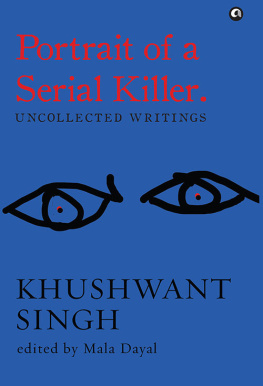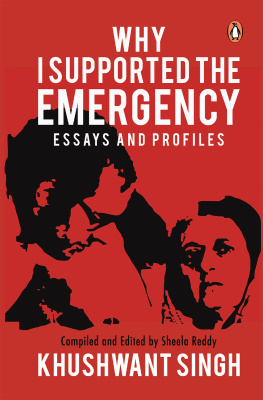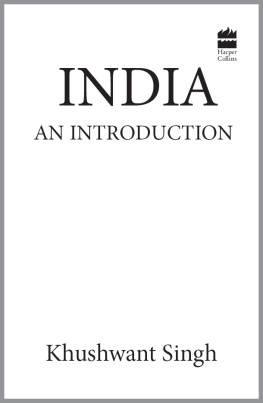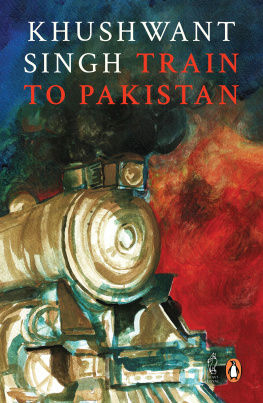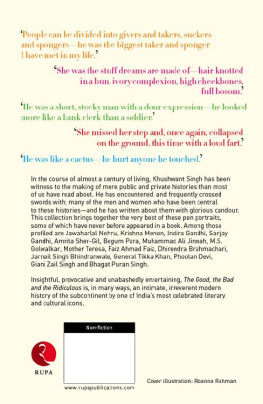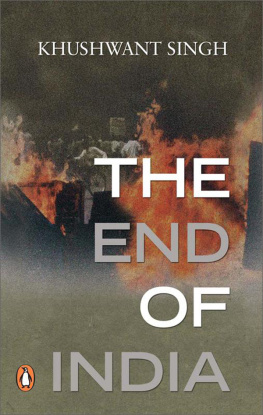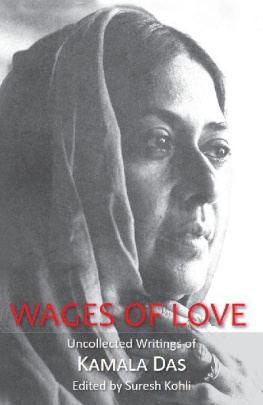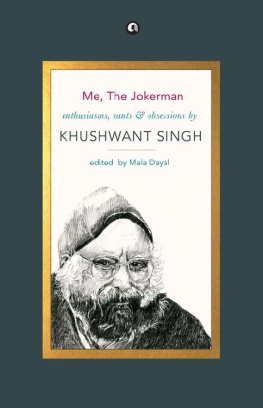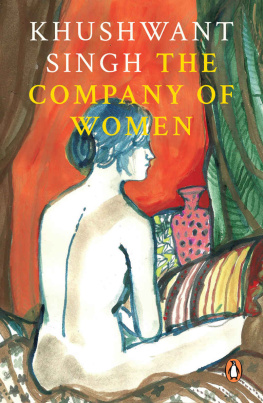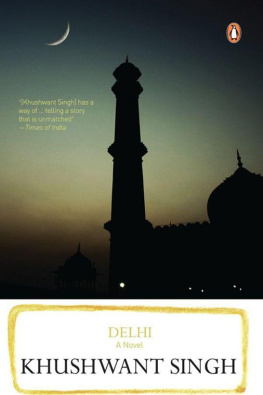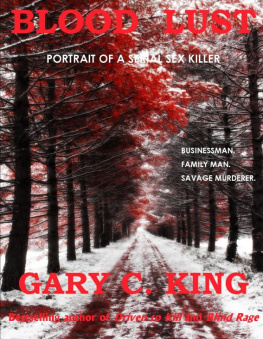Khushwant Singh - Portrait of a Serial Killer: Uncollected Writings
Here you can read online Khushwant Singh - Portrait of a Serial Killer: Uncollected Writings full text of the book (entire story) in english for free. Download pdf and epub, get meaning, cover and reviews about this ebook. year: 2015, publisher: Rupa & Co, genre: Detective and thriller. Description of the work, (preface) as well as reviews are available. Best literature library LitArk.com created for fans of good reading and offers a wide selection of genres:
Romance novel
Science fiction
Adventure
Detective
Science
History
Home and family
Prose
Art
Politics
Computer
Non-fiction
Religion
Business
Children
Humor
Choose a favorite category and find really read worthwhile books. Enjoy immersion in the world of imagination, feel the emotions of the characters or learn something new for yourself, make an fascinating discovery.
- Book:Portrait of a Serial Killer: Uncollected Writings
- Author:
- Publisher:Rupa & Co
- Genre:
- Year:2015
- Rating:3 / 5
- Favourites:Add to favourites
- Your mark:
- 60
- 1
- 2
- 3
- 4
- 5
Portrait of a Serial Killer: Uncollected Writings: summary, description and annotation
We offer to read an annotation, description, summary or preface (depends on what the author of the book "Portrait of a Serial Killer: Uncollected Writings" wrote himself). If you haven't found the necessary information about the book — write in the comments, we will try to find it.
Portrait of a Serial Killer: Uncollected Writings — read online for free the complete book (whole text) full work
Below is the text of the book, divided by pages. System saving the place of the last page read, allows you to conveniently read the book "Portrait of a Serial Killer: Uncollected Writings" online for free, without having to search again every time where you left off. Put a bookmark, and you can go to the page where you finished reading at any time.
Font size:
Interval:
Bookmark:

Also by Khushwant Singh
FICTION
Train to Pakistan
I Shall Not Hear the Nightingale
Delhi: A Novel
The Company of Women
Burial at Sea
The Sunset Club
The Portrait of a Lady: Collected Stories
NON-FICTION
Truth, Love & a Little Malice: An Autobiography
Nature Watch
Indira Gandhi Returns
A History of the Sikhs
Ranjit Singh: Maharaja of the Punjab
ANTHOLOGIES
The Freethinkers Prayer Book
99: Unforgettable fiction, non-fiction, poetry & humour
TRANSLATIONS
Land of Five Rivers
Umrao Jan Ada (with M. A. Husaini)
Shikwa and Jawab-i-Shikwa
Celebrating the Best of Urdu Poetry (with Kamna Prasad)

ALEPH BOOK COMPANY
An independent publishing firm
promoted by Rupa Publications India
First published in India in 2015 by
Aleph Book Company
7/16 Ansari Road, Daryaganj
New Delhi 110 002
Copyright Devdutt Pattanaik 2015
All rights reserved.
No part of this publication may be reproduced, transmitted, or stored in a retrieval system, in any form or by any means, without permission in writing from Aleph Book Company.
eISBN: 978-93-84067-05-2
This book is sold subject to the condition that it shall not, by way of trade or otherwise, be lent, resold, hired out, or otherwise circulated without the publishers prior consent in any form of binding or cover other than that in which it is published.

The marble plaque installed in Khushwant Singhs first school in Hadali, Punjab (now in Pakistan)
Fakir Aijazuddin, a family friend, had taken his ashesby train to Pakistan and had them interred and groutedpermanently behind the plaque.
This book is dedicated to
Nandini Mehta in gratitude for the gift of friendship.
CONTENTS
This book will be published on the hundredth anniversary of my fathers birth, and a little over a year after he passed away. In death, as in life, my father cast a long shadow, especially when it came to those of his friends and fans who admired his honesty and courage as a journalist, and his forthrightness and lucid style as a writer. This was evident from the obituaries written at his death, not only in India and the UK, but perhaps even more so in Pakistani newspapers, both English and Urdu. Article after article mentioned his strong advocacy of Indo-Pak friendship and cited incidents of how he stuck his neck out for his beliefs.
The affection he commanded in Pakistan was also evident at a special session held in his honour at a literary festival I attended in Lahore in February 2015. The hall was packed with perhaps a thousand people. The panel discussion was chaired by Fakir Aijazuddin, who had taken some of my fathers ashes by train to Pakistan and interred them at Hadali, where my father was born. My fathers warm welcome to visitors from Pakistan, his love of Urdu poetry and scholarship were mentioned by all the panellists. One of them recounted an incident that occurred after the 1971 war: My father went to see Mrs Indira Gandhi and pleaded for the release of the 93,000 prisoners of war. He told her that holding these prisoners was morally wrong. She snubbed him, saying, Thanks for lecturing me on morality. He was undeterred and continued to ask that they be released. Nor was he bothered when he was referred to as an unpaid agent of Pakistan.
The audience clapped and cheered.
I returned to Pakistan two months later for the Islamabad Literary Festival. This time my brother and I were able to go to Hadali. The village came out to welcome us, overwhelming us with warmth and hospitality. We saw the place where my father was born; the house was now just a pile of bricks, but the government school where he studied, though dilapidated, was still functioning. Our friends Shahnaz and Aijazuddin accompanied us on this trip and showed us where my fathers ashes has been mixed with cement and placed behind the marble plaque so that he could rest where his roots were. They had brought rose petals to put on the ledge of the plaque and, like my father had done some thirty years before, I was overcome and broke down.

As is to be expected, this collection has more than one piece on Pakistan. But it also has pieces on a number of other subjects that my father was interested in. Throughout his very long career as a writer, editor, journalist and columnist, his work had a few distinguishing characteristics that made it impossible to mistake it for that of any other writermost noticeably a dislike for humbug, flowery phrases and hyperbole. He usually wrote several drafts of every piece that was eventually published. Each of these drafts was diligently typed out by Mr Lachman Das, his long-time assistant, on a manual typewriter, and delivered to my father, who would then correct and revise the piece for it to be typed out again by Mr Das. When I was going through his manuscripts and papers to put together this book I often found more than one draft of a piece. In such cases, I chose to include the version that seemed to be the most distinctive and polished. Several of the pieces have been lightly edited. To the extent possible, the pieces are chronologically arranged within the sections in which they appear. The multiple drafts of a number of the pieces also made it difficult to accurately date them and identify the magazine or newspaper in which they eventually appeared. It would, however, be safe to say that versions of the majority of the pieces in the book appeared in Yojana, The Statesman, the New York Times, New Delhi, the Hindustan Times, the Illustrated Weekly of India and The Tribune. To the best of my knowledge, most of these pieces, or at any rate these versions of these pieces, have never been collected in book form before. A few of the pieces have never been published before.
The book is divided into four sections: Unforgettable People, Memorable Places, The Indian Way and A Matter of Politics. The first section contains character sketches of people as diverse as the serial killer Raman Raghav who terrorized Bombay before he was caught; the pre-eminent biographer of Mother Teresa, British journalist Malcolm Muggeridge; and one of Indias most popular singers, Lata Mangeshkar. Included in this section is An Evening with Dev Anand whose photograph with my father has been put up at Government College, Lahore, with the heading Pride of Subcontinent.
During the first phase of his career as a journalist, when he edited and wrote for magazines and newspapers like Yojana, the Illustrated Weekly of India, New Delhi and the Hindustan Times, he was an indefatigable traveller, making trips to some of the most far-flung places in the subcontinent, and overseas. The journeys he made when working for Yojana generated some of his finest work, transforming what could have been dreary reports on steel plants and dams into lyrical prose. These essays appear in the section Memorable Places.
Font size:
Interval:
Bookmark:
Similar books «Portrait of a Serial Killer: Uncollected Writings»
Look at similar books to Portrait of a Serial Killer: Uncollected Writings. We have selected literature similar in name and meaning in the hope of providing readers with more options to find new, interesting, not yet read works.
Discussion, reviews of the book Portrait of a Serial Killer: Uncollected Writings and just readers' own opinions. Leave your comments, write what you think about the work, its meaning or the main characters. Specify what exactly you liked and what you didn't like, and why you think so.

